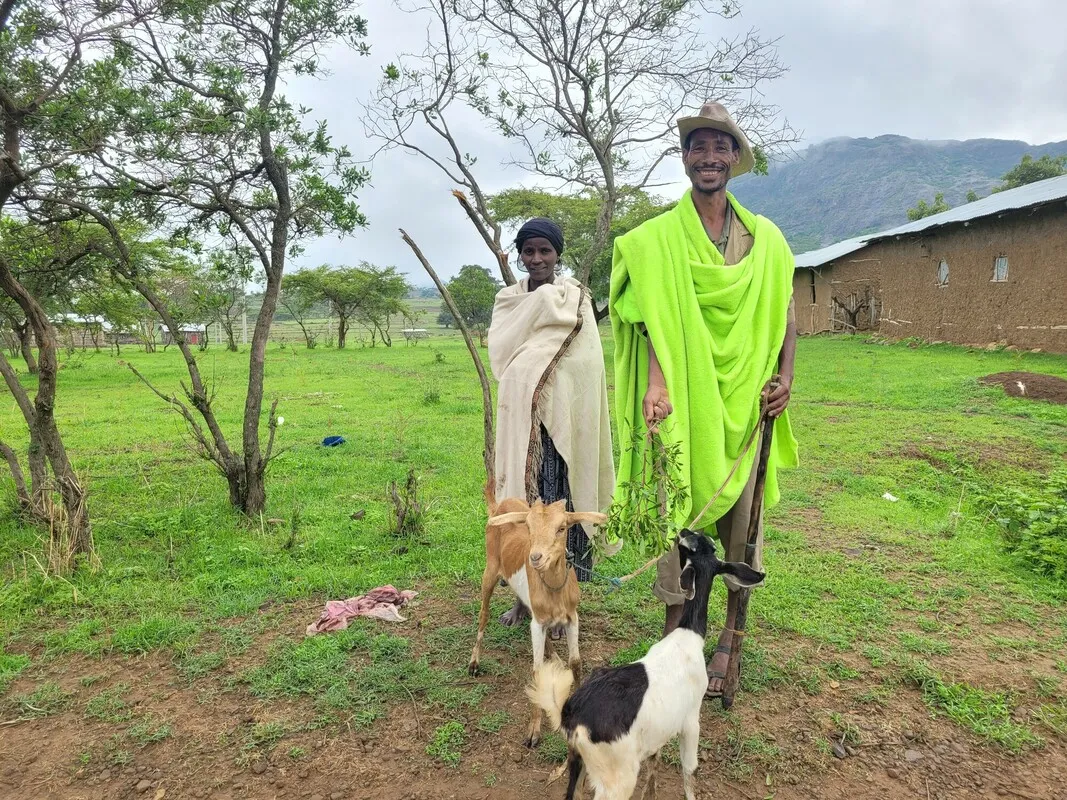One of the things I am thankful for every year is the fact that CARE is able to do as much as we do to change that situation, and help the people who need it most build solutions in their own lives. I’m always grateful to be a part of an organization that does such diverse work in so many places.
So what are some things to be thankful for this year?
From July through September 2022, CARE and our partners have provided direct humanitarian assistance to 7.3 million people in 58 countries. 54% of these people are women and girls. 39 of those countries are currently experiencing food crisis, and 25 of them are facing overlapping crisis—including food, climate, and conflict crises.
What has changed?
- People have more food and resources. 2.7 million people got nutritious food, and 578,000 got cash or vouchers. In Georgia, CARE Caucasus staff worked through help-line to talk with participants of cash program, hear their feedback, complaints, and responded to those complaints. That helped build trust with participants. which resulted in high trust towards CARE. CARE Caucuses also become the leading agency to support the people from Ukraine, establish the close relationship with UNHCR, Government of Georgia and Embassy of Ukraine. In Haiti, the team is most proud of using talking books device to spearhead nutrition in emergency programming.
- People have safer water. 2.6 million people got emergency water and hygiene services. For example, in Iraq, the team is leading response to the cholera outbreak.
- People are growing food, even during the food crisis. 2.5 million people in 24 countries got help to face the global food crisis. In Yemen alone, 1.14 million people have gotten help with food crisis. In July 2022, CARE Ethiopia distributed agricultural inputs such as fertilizer, wheat seeds, vegetable seeds for several thousand farm households by adapting many existing projects. That means farmers could plant their crops at the right time to make the most of this year’s planting season. In Morocco, CARE’s cash and vouchers have allowed many micro-enterprises to survive through the economic and food crisis.
- People have better responses to gender based violence. 886,000 people got GBV services and info. For example, in Egypt, CARE offered hairdresser training to women staying or visiting governmental GBV shelters. The first class of women has now graduated with the skills to work as freelancers or have jobs in beauty salons.
- People can access health services. 640,000 people got health services. 257,000 people got sexual and reproductive health services. For example, in Cameroon, when feedback from the SANTE Maroua project reported that women were suffering from birth complications (obstetric fistulas) the project was able to support all of those women to get operations in health centers.
How did it happen?
- Work with partners. Not only is CARE working with 315 partners, we’ve grown that number by 15% since this time last year. We’re also working with 123 Women’s Rights or Women-Led Organizations, up 34% since this time last year. CARE Iraq has started 4 new partnerships with Women-Led organizations in the last 3 months.
- Lead and participate in humanitarian bodies. 50 CARE country offices sit in the national humanitarian clusters—up 19% from this time in 2021. CARE Myanmar has been proposed as a chair of the Southeast Cash Working Group and a crucial member of the Needs Monitoring & Analysis Working Group because of their incredibly ability to produce and share data and needs assessments.
- Move fast and adapt. 28 countries have already adapted their long-term programming to meet the global food crisis. Countries are moving quickly to respond to crises. In Nepal, CARE and our partners got assistance to people impacted by the Koshi flood within 2 days, something the government of Nepal publicly thanked us for. In Nigeria, CARE scaled up response by adding over 57,000 individuals to get food assistance during the lean season.
- Produce quality, relevant data. 28 countries have done Rapid Gender Analyses, and dozens have produced influential data on the food crisis and it’s impacts. Market assessments, post-distribution monitoring, and other analyses help inform not just CARE, but also global processes. For example, the UN credits CARE with the reason it has a people-focused response to the food crisis, and one that focuses on gender equality.
- Focus on gender equality. 50 countries are always using the gender marker to make sure their funding proposals are meeting CARE’s standards for equality. 30 countries have ensured that women leaders and participants are participating in decision-making and planning for CARE projects and emergency response.
- Be more accountable. 52 countries have standard operating procedures for feedback mechanisms—up 42% from this time last year. 52 countries are operating feedback mechanisms, although 24 of those need more resources. 46 of those countries got communities involved in designing and setting up the feedback systems.
- Be more transparent. 27 countries are reporting CARE’s financing through OCHA’s tracking systems to stay accountable to our commitments—up 42% from September 2021.
Want to learn more?
Check out CARE’s latest Humanitarian Update.

